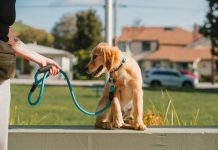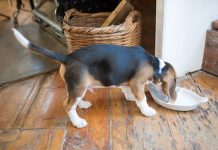Welcoming a new puppy into your home is an exciting adventure filled with joy, curiosity, and a few inevitable challenges. As you embark on this journey, it’s essential to remember that the foundation of a well-behaved and happy dog begins with effective training. But who says training can’t be fun? In fact, the best puppy training methods seamlessly blend learning with play, transforming lessons into enjoyable bonding experiences for both you and your furry friend. In this article, we will explore a selection of the best puppy training games designed to foster obedience, enhance cognitive skills, and strengthen the unique bond you share with your pup. So, grab some treats, prepare for wagging tails, and let the games begin!
Interactive Playtime Activities for Building Essential Skills
Engaging your puppy in games that double as learning opportunities is a delightful way to nurture their growth. Through interactive play, puppies can develop crucial skills that lay the foundation for their lifelong learning journey. Here are some enriching activities that combine fun with education:
- Hide and Seek: This classic game isn’t just for kids. Encourage your pup to use their keen sense of smell and tracking abilities by hiding treats or toys around your home or yard. As they search, they’ll enhance their problem-solving skills and build confidence.
- Tug-of-War: Playing tug-of-war with your puppy helps them learn about impulse control and boundaries. Use a sturdy rope toy and ensure to teach them the “drop it” command during play, promoting obedience and strengthening your bond.
- Fetch with a Twist: Elevate the traditional game of fetch by incorporating commands like “sit” or “stay” before throwing the toy. This not only sharpens their focus but also reinforces command training in a playful context.
Incorporating these activities into your routine will not only keep your puppy entertained but also contribute to their mental and physical development. Remember, the key is consistency and positive reinforcement, turning every game into a stepping stone for learning.
Creative Games to Enhance Your Puppys Problem-Solving Abilities
Engaging your puppy in problem-solving activities is a wonderful way to stimulate their growing minds and keep them entertained. Try incorporating interactive puzzle toys that require your puppy to move pieces to find hidden treats. These toys not only challenge their cognitive abilities but also help improve their dexterity and focus.
- Treasure Hunt: Hide small treats or toys around the house and encourage your puppy to sniff them out. This game taps into their natural instincts and enhances their scent-tracking skills.
- Shell Game: Place a treat under one of three cups and shuffle them around. Let your puppy use their keen sense of smell and observation to find the right cup. This game is perfect for honing their concentration and memory.
- Obstacle Course: Set up a simple course using household items like chairs, cushions, and boxes. Guide your puppy through the course, rewarding them for each successful navigation. This encourages problem-solving and builds their confidence.
Incorporate these playful activities into your daily routine to help your puppy grow into a clever and confident companion. Remember, patience and positive reinforcement are key to making learning enjoyable for both you and your furry friend.

Tailored Recommendations for Engaging and Effective Training Sessions
Creating a training session that’s both engaging and effective for your puppy can be a rewarding experience for both you and your furry friend. Here are some tailored recommendations to ensure your puppy training games are not only fun but also conducive to learning:
- Interactive Toys: Incorporate toys that challenge your puppy’s problem-solving skills. Look for toys that dispense treats or require manipulation to engage their curiosity and intelligence.
- Short and Sweet Sessions: Keep training sessions brief but frequent. Puppies have short attention spans, so aim for 5-10 minute sessions multiple times a day to maintain their interest without overwhelming them.
- Positive Reinforcement: Use plenty of praise and treats to reward your puppy when they succeed. This encourages them to associate training with positive outcomes and builds their confidence.
- Consistency is Key: Ensure all family members use the same commands and rewards. Consistent cues help your puppy understand expectations and reduce confusion.
By incorporating these elements, you’ll create a training environment that is not only effective but also enjoyable for your puppy, paving the way for a strong bond and a well-behaved companion.
















